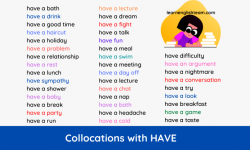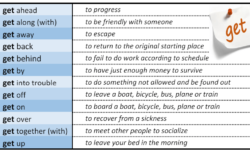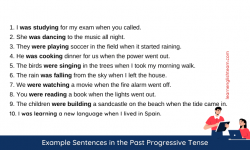The Revolution of Free Essay Generators
The advent of free AI essay generators has transformed the landscape of text creation, making it possible to effortlessly write essays, blog posts, and business proposals. These tools not only offer efficiency and time-saving benefits but also enhance creativity and writing quality, making them indispensable for both professionals and students.
With features such as instant essay generation, anti-plagiarism measures, and integration with blogging platforms, free AI essay generators support a wide range of applications. They are trusted by thousands to deliver high-quality, versatile content that meets the diverse needs of users looking to improve their writing or streamline their workflow.
Understanding Generative AI
Generative AI stands as the backbone of today’s technological marvels, from text generation to creating synthetic images. At its core, Generative AI encompasses deep-learning models adept at generating high-quality content across various domains by leveraging the data they have been trained on. Notably, these models are not limited to text; they extend their capabilities to software code, molecular structures, and even natural images, showcasing their versatility.
- Architecture: The foundation of Generative AI models lies in an intricate structure of encoders and decoders, a design principle that also supports large language models. The introduction of Transformers by Google in 2017 marked a significant advancement, integrating the encoder-decoder framework with a novel text-processing technique known as attention. This has enabled Transformers to undertake both generative tasks, like translation and summarization, and non-generative tasks, such as classification and entity extraction.
- Applications: The utility of Generative AI spans across creating sophisticated software codes, propelling the discovery of new molecules, enhancing conversational chatbots, and generating synthetic data. Noteworthy implementations include AI systems like ChatGPT and DALL-E, which specialize in generating text and images, respectively. These models, trained on extensive datasets, are capable of producing outputs that are remarkably human-like, sometimes to the point of being indistinguishable from content created by humans.
- Challenges and Considerations: Despite the impressive capabilities of Generative AI, it’s crucial to acknowledge the limitations and ethical considerations. Potential biases, inaccuracies, and the risk of misuse for unethical activities are significant concerns. To mitigate such risks, it’s advisable for organizations to carefully curate the initial training data, employ specialized models for specific tasks, and ensure human oversight remains a critical part of the process.
The Mechanism Behind AI Text Generation
AI text generation, a marvel of modern technology, hinges on sophisticated deep learning architectures and Natural Language Processing (NLP) techniques. These systems meticulously analyze and learn from vast datasets, identifying patterns to craft novel text that mirrors human writing. The process unfolds as follows:
Data Analysis and Learning:
- AI models, including renowned ones like GPT and Google’s PaLM, digest extensive text data, understanding grammar, context, and patterns.
- These models are adept at predicting probable subsequent words or phrases, relying on the input or conditions provided.
Process of Text Generation:
- The journey begins with gathering and preprocessing a diverse range of text data.
- Following this, the AI is trained, generating text, which is then evaluated for quality.
- Techniques like conditional text generation and reinforcement learning refine the process, allowing for customization and learning from feedback.
Refinement and Application:
- The heart of text generation lies in learning word embeddings, capturing the essence of words as vectors to grasp semantic relationships.
- Fine-tuning these models on specific tasks enhances their capability, making them versatile tools in applications like summarization, translation, and more.
This intricate process underscores the revolution free AI essay generators bring to text creation, offering a glimpse into the future of automated writing.
Applications and Implications
The transformative power of free AI essay generators and AI text generation technologies extends far beyond mere convenience, touching various sectors with their multifaceted applications and implications. Here’s a closer look:
Diverse Applications:
- Content Creation: Automating blog posts, articles, and web content.
- Customer Service: Powering chatbots for 24/7 assistance.
- Language Translation: Bridging communication gaps across cultures.
- Education: Assisting in essay writing and academic research.
- Creative Arts: Fueling novel-writing and game design with innovative narratives.
Implications and Ethical Considerations:
- Personalization and Engagement: Tailoring messages to individual behaviors and preferences.
- Business Efficiency: Enhancing brand voice consistency and customer interaction.
- Creative and Artistic Pursuits: Offering new avenues for artistic expression.
- Potential Misuse: Risks of generating fake news and astroturfing.
- Academic Integrity: Concerns over plagiarism and the devaluation of original work.
Overcoming Challenges:
- Ethical Use: Emphasizing responsible utilization and avoiding plagiarism.
- Balancing AI Assistance: Encouraging a blend of AI support with personal insight and creativity in academic writing.
- Addressing Bias: Ensuring diverse and unbiased training data for AI models.
This exploration underlines the necessity of navigating the benefits and challenges of AI text generation thoughtfully, ensuring its potential is harnessed responsibly across all applications.
The Future of AI-Generated Texts
As we peer into the horizon of AI-generated texts, several key developments stand poised to redefine the landscape of content creation, academic writing, and beyond. Here are some focal points:
Innovations and Advancements:
- AIContentfy and similar platforms are revolutionizing the way we approach content creation, offering services from link building to human-optimized articles.
- Top Models: GPT-4, Claude, ChatGPT, and others lead the charge, showcasing the potential for even more sophisticated text generation.
- Efficiency and Creativity: AI generators promise not only to save costs and time but also to spark creativity in fields like poetry and fiction.
Challenges and Solutions:
- Despite the promise, limitations such as plagiarism and lack of creativity are hurdles. Continuous improvement in models and ethical guidelines are crucial for addressing these issues.
- Ethical AI Use: Balancing AI’s capabilities with responsible use is essential to mitigate risks like misinformation.
Looking Ahead:
- Market Growth: The natural language processing market is expected to soar, highlighting the growing importance of text generation.
- Technical Advances: With AI expected to reach human-level performance in many areas, the integration of AI in decision-making and collaboration will become more prevalent.
- Accessibility: AI democratization will make powerful tools available to a wider audience, fostering innovation across various sectors.
These points underscore the dynamic evolution of AI-generated texts, emphasizing the blend of challenges and opportunities that lie ahead.
Conclusion
Throughout this exploration, we’ve unraveled the profound impact of free AI essay generators on the realm of text creation, spotlighting their revolutionary role in enhancing efficiency, creativity, and quality across a multitude of disciplines. The journey from understanding the intricate mechanisms behind AI-powered text generation to examining its vast applications underscores the transformative potential of this technology. By streamlining content creation, fostering innovation in customer engagement, and breaking new ground in academic and creative pursuits, these tools have proven to be indispensable allies in the digital age.
As we stand on the cusp of further technological advancements, it is imperative to navigate the future with a balanced outlook—embracing the opportunities AI text generation offers while addressing its challenges head-on. The responsibility to use these powerful tools ethically and effectively lies with both creators and the broader community, ensuring that we continue to harness the benefits of AI in a manner that enriches our world. Moving forward, the focus should be on fostering responsible innovation, promoting accessibility, and paving the way for even more groundbreaking applications of AI in text creation.



